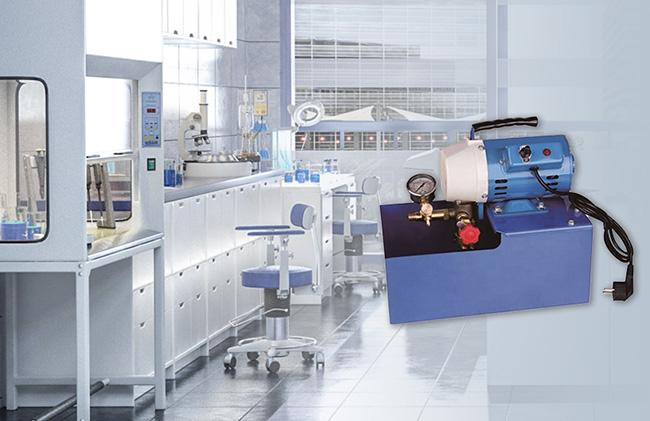What is a Pressure Test Pump?
A pressure test pump is a mechanical device used to evaluate the integrity and strength of pressure vessels, pipes, and other components by subjecting them to controlled pressure. It typically consists of a pump mechanism, pressure gauge, and a reservoir for holding water or another testing fluid. The pump is manually or electrically operated to pressurize the fluid, which is then directed into the system being tested. Pressure test pumps are crucial in industries like construction, plumbing, and manufacturing, ensuring that pipelines, boilers, and containers can withstand their designated operational pressures. In this article, we will introduce more about pressure test pump.

What are the features of pressure test pump?
- High Pressure Generation. Pressure test pumps are designed to generate and sustain high pressures to simulate real-world conditions for testing purposes. They can often achieve pressures well above the normal operating range of the system being tested.
- Adjustable Pressure Settings. Many pressure test pumps allow users to adjust the pressure settings according to the requirements of the specific test. This flexibility is essential for testing different components with varying pressure tolerances.
- Pressure Gauge. A built-in pressure gauge is a crucial feature, providing a visual indication of the pressure being applied during the test. This helps operators monitor and control the pressure accurately.
- Easy Priming and Operation. The hydraulic test pump should be easy to prime, and the operation should be straightforward to ensure efficient and reliable testing procedures.
- Compact and Portable Design. Pressure test pumps are often designed to be compact and portable, allowing for ease of transportation and use in various locations. This is especially important when conducting tests in different areas of a facility or on-site.
- Durable Construction. Pressure test pumps are constructed with materials that can withstand high pressures and are resistant to corrosion. This ensures the longevity and reliability of the pump for repeated use.
What are the precautions when using pressure test pump?
- Read the Manual. Always read and understand the manufacturer's manual before operating the pressure test pump. Familiarize yourself with the specific features, limitations, and safety instructions provided by the manufacturer.
- Inspect Equipment. Before each use, inspect the pressure test pump for any signs of damage, wear, or leaks. Check hoses, fittings, and seals for integrity. Do not use the pump if you identify any issues; repair or replace damaged parts before operation.
- Leak Detection. Before pressurizing the system, conduct a thorough leak detection check. Ensure all connections are tight, and there are no visible leaks. Detecting and addressing leaks beforehand minimizes the risk of sudden pressure releases and enhances the overall safety of the operation.
- Use Suitable Fluids. Only use the fluids specified in the manual for the pressure test pump. Using the wrong type of fluid can damage the pump and compromise safety.
- Check Pressure Ratings. Ensure that the pressure ratings of the hydraulic pump, hoses, and other components are compatible and within the specified range. Exceeding the recommended pressure limits can lead to equipment failure and pose a safety risk.
- Secure Work Area. Set up the pressure test pump in a well-ventilated and organized workspace. Ensure that the pump is stable and won't tip over during operation. Keep the area clear of obstacles to prevent tripping hazards.
- Environmental Considerations. Consider the environmental impact of pressure testing. Avoid testing near environmentally sensitive areas, and have proper containment measures in place to prevent the release of fluids or contaminants.
Pressure test pumps are indispensable tools in various industries, providing a reliable means of ensuring the safety, compliance, and performance of pressure-containing systems. The wide range of pump types allows for flexibility in different applications, from small-scale plumbing to heavy-duty industrial settings. On ATO shop, you can buy the right pressure test pump. As technology advances and industries continue to evolve, the role of pressure test pumps remains critical in maintaining the integrity and reliability of our built environment.

